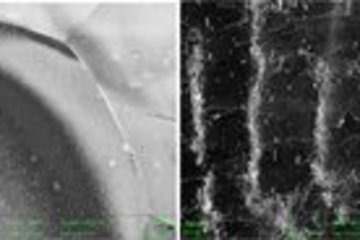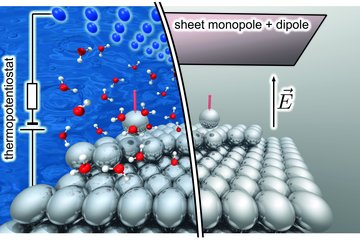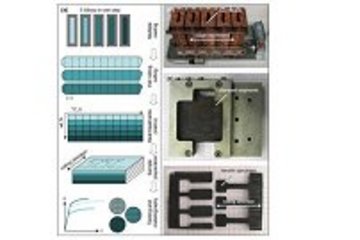All genres
181.
Talk
Fully Ab Initio Description of Point Defect Formation and Properties at Extreme Temperatures. MRS 2011 Spring Meeting, San Francisco, CA, USA (2011)
182.
Talk
Finite temperature magnetism combining first-principles and spin Quantum Monte Carlo. DPG Frühjahrstagung, 2011, Dresden, Germany (2011)
183.
Talk
First principles concepts to calculate thermodynamic properties of magnetic materials. ICAMS Advanced Discussions, Bochum, Germany (2011)
184.
Talk
Thermodynamic data of Fe-based alloys derived from first principles. MRS Spring Meeting 2010, Boston, MA, USA (2010)
185.
Talk
Phase stabilities of metals at finite temperatures: Ab initio meets CALPHAD. 468. WE-Heraeus-Seminar, Ab intio Description of Iron and Steel (ADIS2010): Mechanical Properties, Ringberg, Germany (2010)
186.
Talk
Integrating finite temperature magnetism into ab initio free energy calculations. ICAMS Scientific Retreat, Akademie Biggesee, Attendorn, Germany (2010)
187.
Talk
The thermodynamics of Fe-based compounds derived from first principles. Materials Science and Engineering 2010, Darmstadt, Germany (2010)
188.
Talk
Using ab initio methods to predict thermodynamic properties of metals. Summer School: Computational Materials Science, San Sebastian, Spain (2010)
189.
Talk
Ab initio Bestimmung thermodynamischer Eigenschaften des Legierungssystems Fe-Mn-C. Sitzung FA Computersimulation der DGM, Aachen, Germany (2010)
190.
Talk
First principles concepts to determine the heat capacity of Fe-based alloys. Calphad XXXIX, Jeju Island, South Korea (2010)
191.
Talk
Ab initio determination of the magnetic free energy contribution of metallic systems. DPG Frühjahrstagung 2010, Regensburg, Germany (2010)
192.
Talk
Ab initio determination of the magnetic free energy contribution of metallic systems. APS March Meeting 2010, Portland, OR, USA (2010)
193.
Talk
Towards a First-Principles Understanding of the Iron Phase Diagram. 139th Annual Meeting of the Minerals, Metals and Materials Society (TMS), Seattle, WA, USA (2010)
194.
Talk
Ab initio determination of the magnetic free energy contribution of metallic systems. Computational Materials Science on Complex Energy Landscapes Workshop, Imst, Austria (2010)
195.
Talk
Considerations on the magnetic contribution to the free energy of Fe and related alloys. MCA-Fe. International workshop "Modern computational approaches in iron based alloys”, Ekaterinburg, Russia (2009)
196.
Talk
Towards a first-principles understanding of the iron phase diagram. Euromat 2009, Glasgow, UK (2009)
197.
Talk
First principles simulation of thermodynamic properties of iron and iron-based alloys. Thermec'2009. International conference on processing & manufacturing of advanced materials, Berlin, Germany (2009)
198.
Talk
The accuracy of first principles methods inpredicting thermodynamic properties of metals. XVIII International Material Research Conference, Cancun, Mexico (2009)
199.
Talk
Ab Initio Thermodynamics: Status, applications and challenges. The second Sino-German Symposium on “Computational Thermodynamics and Kinetics and Their Applications to Solidification”, Kornelimünster/Aachen, Germany (2009)
200.
Talk
The accuracy of first principles methods in predicting thermodynamic properties of metals. Asia Steel 2009, Busan, South Korea (2009)











